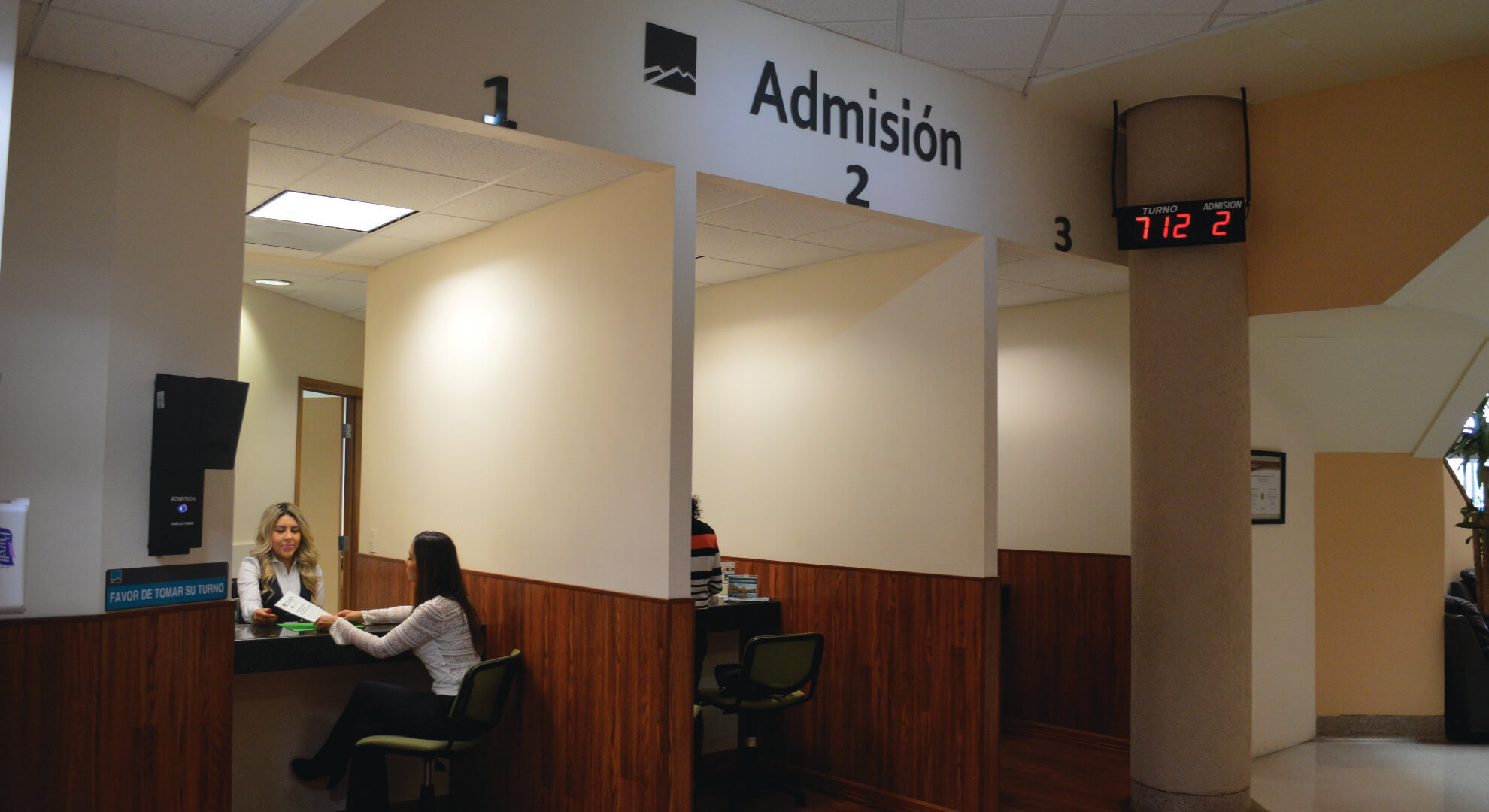
We have an admission and check-in service 24 hours a day at the Emergency Reception.
The Admission and Cash service of the main entrance is:
- Monday to Friday 7:00 a.m. to 8:30 p.m.,
- Saturdays and Sundays from 7:30 a.m. to 7:30 p.m.
Once your doctor has indicated that admission to CIMA Hospital to be treated is needed, you must take into account the following aspects:
Admission Procedure:
Medical expenses insurance: it is important that if you have medical insurance to present your card and/or authorization letter of the procedure to be performed.
Pre-admission: it is recommended that in a scheduled surgery you perform the procedure in advance, to expedite the paperwork.
Important documents:
- Official identification (INE, license, or Mexican passport).
- Proof of address.
- Internment order issued by your doctor.
Deposit:
A deposit must be covered, which amount will depend on the procedure to be performed, and it will be informed in the Admission area. Afterward, you can request a credit to your account, depending on the accumulated balance. The deposit is for private patients and Medical Insurance (applies for both cases).
TV remote control and parking card:
Just like the information brochure, it is only 1 per patient; in the case of television controls, two could be delivered if the patient is in a suite.
Cost of care:
If you have not previously requested the approximate cost of your care, you can do so in the Admission and Cash Department. The cost of medical fees will be provided by your doctor when you request it.
Values and belongings:
It is recommended that the patient and companion enter without any values (jewelry, money, etc.), if you bring them with you, you can deposit them for safekeeping in a safe box in the Admission area. It is also recommended that you take care of your personal belongings at all times since the hospital is not responsible for your values and belongings in case of theft or loss.
Informed consent:
Prior to entering the Hospital, or before performing surgery or procedure that carries a risk, your treating doctor must have clearly explained:
- The condition;
- The expectations of cure, improvement, or palliation of your illness;
- Therapeutic procedures proposed;
- Its benefits;
- Possible alternatives;
- Probability of success;
- Possible complications, as well as inherent sequelae or risks; and
- Possible results to the lack of treatment.
Hospital staff will ask you to sign the document where you give your consent freely, responsibly and without coercion, in relation to your admission and diagnostic procedures or proposed treatments, based on the information provided by your doctor.
If you have any questions, you should request the hospital staff to contact your doctor and make pertinent clarifications.
For each surgery or procedure that involves risk, prior to the realization, your authorization will be requested, which means that you can sign several consents during your stay.
The Informed Consent must be signed by the patient. Only in cases of minors or when the patient is in temporary or permanent disability, it must be signed by a family member or their legal representative.

